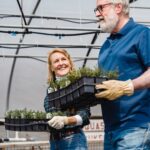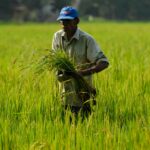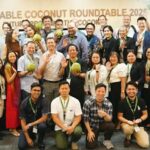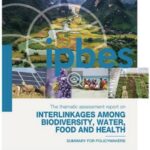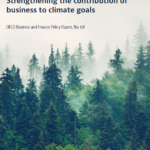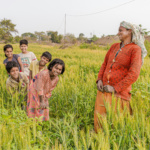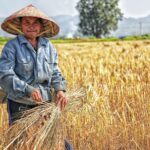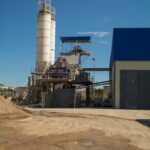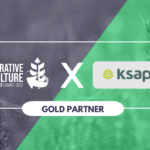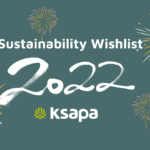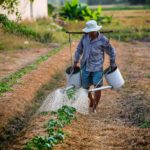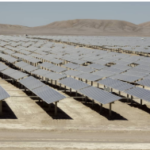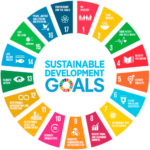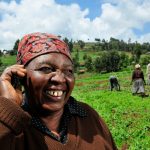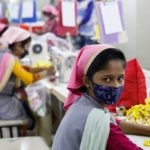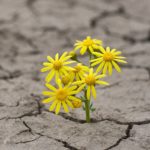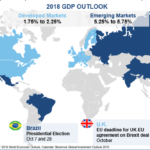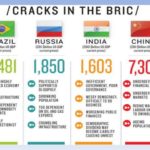Ksapa London Summer Dinner
Earlier this summer, KSAPA hosted a dinner with a hand-picked group of decision makers and practitioners from the corporate (technology, consumer goods & extractives) and the not-for-profit sectors. The event, which took place at Native in London (focus on ethical and sustainable cooking!), was the opportunity to relax and explore the challenges, insights and solutions impacting the delivery of the SDGs across global, smallholder empowered agricultural value chains.
This dinner was the first of a series of seasonal gatherings aimed at enabling alignment and cross fertilization across communities of like-minded people. These events are an opportunity to build upon existing programs, dare one another to innovate, raise the ambition and scale and most importantly deliver measurable impact.
One consensual assessment: More is needed…
Smallholders are, without any doubt, a critical component of global agricultural commodity supply chains. They play a critical role in supplying raw materials at the far end of complex global value chains. Clearly, there is insufficient efforts and programs addressing their needs. Poverty, safety, health and nutrition, insufficient gender consideration, an ageing farming population and the lack of interest from youth in farming are challenging the resilience of smallholder value chains. Corporate buyers are increasingly concerned with their ability to access quality and volume at competitive prices. Climate impacts, inflation and rising energy prices are further exacerbating agricultural commodity sourcing activities – making the topic of the dinner really critical for all guests around the table.
Programs deployed by corporations, bilateral, NGOs or collaborative initiatives targeting the SDGs at smallholder level, are still too few and far between – especially given the diversity and number of smallholder stakeholders at play.
Why isn’t enough done to improve the lives and resilience of smallholders?: Four consensual challenges explored during the dinner…
1. Much needed long-term investments are challenged by expectations of short-term results
- Everything in agricultural environments takes time. Building trust with villagers takes time. Ensuring adoption of different agricultural practices takes time. Measuring the impacts of programs improving income, health, gender balance and environmentally friendly practices, takes time.
- Corporations are particularly under pressure to deliver short term results. For the past decades, they often have preferred easier and faster outcome generating programs. Working with consumers is perceived as being more rewarding. Smallholder engagement calls for time and efforts and is all too often deprioritized whenever the opportunities of working with less fragmented business partners, perceived to be closer to business operations or enabling quicker wins, have been identified.
- Collaborative sector based initiatives are also under pressure from their membership. Here the focus has been on lower hanging fruit with a focus on direct supplier engagement (alignment on principles between buyers, audits and engagement of suppliers, deployment of technologies improving traceability, programs improving supplier performance), hoping suppliers would improve practices and then cascade these to smallholders.
- It is very clear now that corporations need to roll up their sleeve if they want to comply with their very own direct commitments (e.g.: Achieving Net Zero targets, Enforcing Human Right Commitments in Supply Chains), take leadership to connect and work with smallholders. This is how they can comply and get a better grasp on the quality, pricing and volume of the raw material they ultimately need to secure for their very own business.
2. Fragmentation and insufficient alignment across the value chain
- Smallholders are out of sight of corporate buyers. And even big global buyers are generally small local players with limited influence in shaping better SDGs performance across their value chains. Collaborative initiatives have often helped to build alignment across buyers on the most material issues, sometimes including suppliers. But inclusion of smallholders themselves into such corporate led or collaborative led initiatives is generally missing.
- Existing programs all too often lack impact performance component, scalability dimension and long term funding strategies.
- Smallholders’ perspective is generally missing in the design and deployment of programs. Too many program focus mostly – or exclusively – on improving practices of a commodity of interest for buyers. Smallholders primarily care about income. Diversification and other levers are therefore of primary importance whereas loyalty towards a buyers or a crop is often secondary. This tendency can manifest itself in the deployment of Net Zero programs which can be conceptual and abstract for farmers primarily interested in accessing cash, food or something they can monetize now.
- It was very clear from our dinner discussions that priority should be given to last mile and concrete programs capable to factor the smallholder perspective into SDG programs.
3. Absence of data profiling smallholders
- Broad definitions of smallholders are way too vague and value chain stakeholders have too low visibility on what smallholder personas really are. Talking about a farmer located in emerging market and making a living out of a below 2ha plot is way too generic to design pertinent programs without direct engagement
- Direct engagement at scale is complicated, and corporations don’t really know how to handle it
- There is a clear lack of data facilitating good understanding of smallholder in their diversity, including: household profile, habits and needs, income and expenses
- It is very clear across the discussions that better access to data smallholders profiling data whilst respecting their privacy, is key to improve existing programs and better address what they really need when it comes to capacity building, livelihood, diversification, access to financial services among other things.
4. Low levels of education make awareness that improvement is needed on the ground complicated
- Smallholders in emerging economies structurally lack access to primary, secondary and professional education. This has concrete implications when designing and deploying programs at their levels
- Smallholders are generally keen to access capacity building, indicating they are aware that they also lack technical knowledge and/or good equipment. Insufficient degree of education in biology, agronomy, finance may however make at least part of this population vulnerable to buy services or adopt bad practices without having the keys to develop a personal critical opinion about this. Vulnerability imposes high ethical standards on the shoulders of programs willing to onboard smallholders on technical itineraries as well as access to additional services providing very clear interest for them
- Privacy and commercial use of smallholders data can be a real challenge. It takes time to build trusted relations with smallholders. It takes time and efforts to collect data from smallholders. If they feel betrayed by solutions selling their data to push commercial solutions they don’t need or can’t afford anyway, this may have negative impact on their commitment. Data privacy is anyway increasingly also a legal requirement, especially when collected from people who can be considered to be “vulnerable” given limited degree of education.
Next steps
Join KSAPA at the Regenerative Agriculture and Food Systems Summit in Amsterdam on the 6th and 7th September 2022 to continue the conversation and/or join us our London Autumn Dinner on the 12th October 2022 (drop Christèle a note if you fancy joining us Cdelbe@ksapa.org).

Christèle Delbé
Christèle is leading engagement with companies on responsible sourcing solutions, driven by our SUTTI programs, and sustainable supply chain consulting.
For 20 years, Christèle has been unlocking commercial benefits across food, technology and non-profit sectors by pioneering strategic initiatives and shifting behaviour. Former Group head of sustainability for 14 years at Orange and Vodafone with strong interest exploring how best to leverage technologies to innovate and provide scalable solutions to human rights, carbon, waste, packaging and responsible supply chains and consumption. For the past 7 years, Christèle moved more closely to food and commodities and has been driving multi-sector partnerships for food value chains with Bonsucro, Danone, Diageo, GPSNR, ISEAL, PepsiCo, Producers Direct, RSPO, Tetra Pak, Unilever and Vodafone.
Christèle speaks English, French and Spanish.
Président et Cofondateur. Auteur de différents ouvrages sur les questions de RSE et développement durable. Expert international reconnu, Farid Baddache travaille à l’intégration des questions de droits de l’Homme et de climat comme leviers de résilience et de compétitivité des entreprises. Restez connectés avec Farid Baddache sur Twitter @Fbaddache.
-
Farid Baddache
-
Farid Baddache
-
Farid BaddacheSeptember 29, 2023
-
Farid Baddache
-
Farid Baddache
-
Farid Baddache
-
Farid Baddache
-
Farid Baddache
-
Farid Baddache

